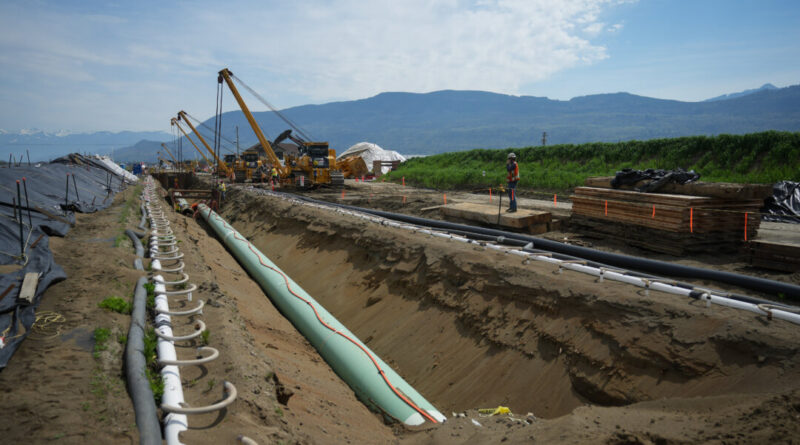Has the Trans Mountain Pipeline Expansion Project Been Successful?
Commentary
The original proponent for TMX was Kinder Morgan, which filed its application with the federal energy regulator in 2013. The expansion would be constructed in the existing right of way of the existing pipeline and increase capacity from 300,000 barrels of oil and refined products to 890,000 barrels of oil per day. This included expansion of the existing dock and loading facilities. Protests began virtually the next day. The cost estimate at that time was $7.4 billion for the 1,150-kilometre pipeline and related facilities. The federal regulator and the federal government approved the project in 2016.
Between 2016 and 2018, the intensity of the protests against the project, and a new government formed in British Columbia that vowed it would use any means possible to make sure TMX would not be built, created significant hurdles. Kinder Morgan warned that the protest’s impact and B.C.’s regulatory and legal challenges were creating significant uncertainty, and the project would be delayed at least a year, stopping all non-essential spending. Ultimately, Kinder Morgan decided it would not continue with TMX because of the increased execution risk and cost to complete the project that the legal and regulatory challenges, and increasing protests, posed.
The foregoing “Coles notes” version of events sets out the challenges endured by TMX as of May 23, 2024. It also highlights that delays in a major project like TMX have a massive impact on costs. But what gets lost in all this is that in 2013 Kinder Morgan, a public company, made a commercial decision to proceed with the project. There was and still is a huge market pull for the pipeline and the incremental oil volumes. There is huge economic and strategic value for Canada that will benefit all sectors of the economy and indigenous communities, who will most likely end with significant pipeline ownership.
Market access for Canada’s oil production in the Pacific markets will change the oil trading dynamics and value for Canadian production. Canada has the third largest oil reserves in the world. Canada is among the best in its class for environmental, safety, social, and governance of its energy production. Canada is also among the best in pipeline construction and safety. So, who best to execute a monumental project like TMX?
We need to reflect and admire the skill, diligence, and perseverance of everyone involved with bringing to fruition TMX as a world-class, state-of-the-art major piece of energy infrastructure.
Yes, TMX is a success, but the process through which it had to persevere was a failure, and we should reflect and learn from it. In the end, despite the final cost, Canada will reap the economic benefits from TMX for decades because the world needs oil and Canada has lots of it.
Chris Bloomer is a board member of FCPP and the former president and CEO of the Canadian Energy Pipeline Association. He has held senior executive positions in the energy industry in Canada and internationally.
Views expressed in this article are opinions of the author and do not necessarily reflect the views of The Epoch Times.





